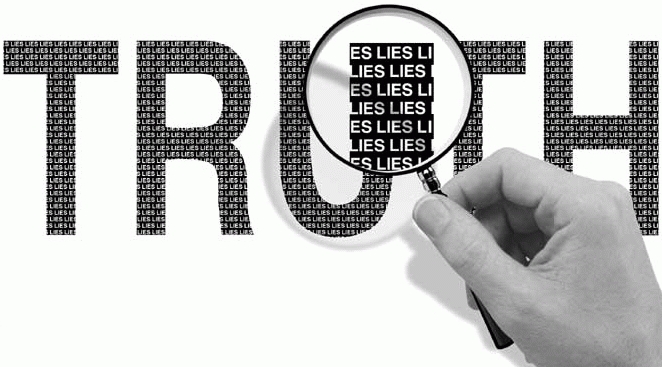
 The amount of misinformation on the internet is overwhelming. As consumers of information, it is crucial for users to be critical of all information that is found online. Utilize the sources below to evaluate news sources, as well as other web content, when searching for information. You will also find that there are several websites that focus on political information and will do the fact checking for you.
The amount of misinformation on the internet is overwhelming. As consumers of information, it is crucial for users to be critical of all information that is found online. Utilize the sources below to evaluate news sources, as well as other web content, when searching for information. You will also find that there are several websites that focus on political information and will do the fact checking for you.
Professor Melissa Zimdars' Tips for analyzing news sources:
Avoid websites that end in “lo” ex: Newslo. These sites take pieces of accurate information and then packaging that information with other false or misleading “facts” (sometimes for the purposes of satire or comedy).
Watch out for websites that end in “.com.co” as they are often fake versions of real news sources
Watch out if known/reputable news sites are not also reporting on the story. Sometimes lack of coverage is the result of corporate media bias and other factors, but there should typically be more than one source reporting on a topic or event.
Odd domain names generally equal odd and rarely truthful news.
Lack of author attribution may, but not always, signify that the news story is suspect and requires verification.
Some news organizations are also letting bloggers post under the banner of particular news brands; however, many of these posts do not go through the same editing process (ex: BuzzFeed Community Posts, Kinja blogs, Forbes blogs).
Check the “About Us” tab on websites or look up the website on Snopes or Wikipedia for more information about the source.
Bad web design and use of ALL CAPS can also be a sign that the source you’re looking at should be verified and/or read in conjunction with other sources.
If the story makes you REALLY ANGRY it’s probably a good idea to keep reading about the topic via other sources to make sure the story you read wasn’t purposefully trying to make you angry (with potentially misleading or false information) in order to generate shares and ad revenue.
If the website you’re reading encourages you to DOX individuals, it’s unlikely to be a legitimate source of news.
It’s always best to read multiple sources of information to get a variety of viewpoints and media frames. Some sources not yet included in this list (although their practices at times may qualify them for addition), such as The Daily Kos, The Huffington Post, and Fox News, vacillate between providing important, legitimate, problematic, and/or hyperbolic news coverage, requiring readers and viewers to verify and contextualize information with other sources.
Currency: the timeliness of the information
Relevance: the importance of the information for your needs
Authority: the source of the information
Accuracy: the reliability, truthfulness, and correctness of the content, and
Purpose: the reason the information exists